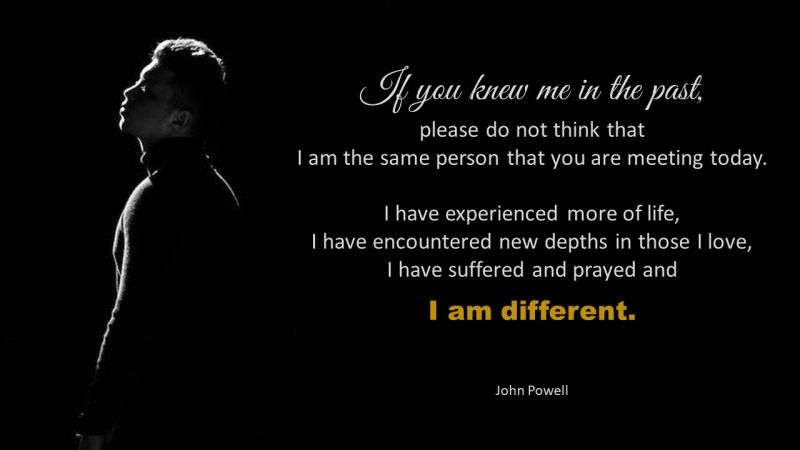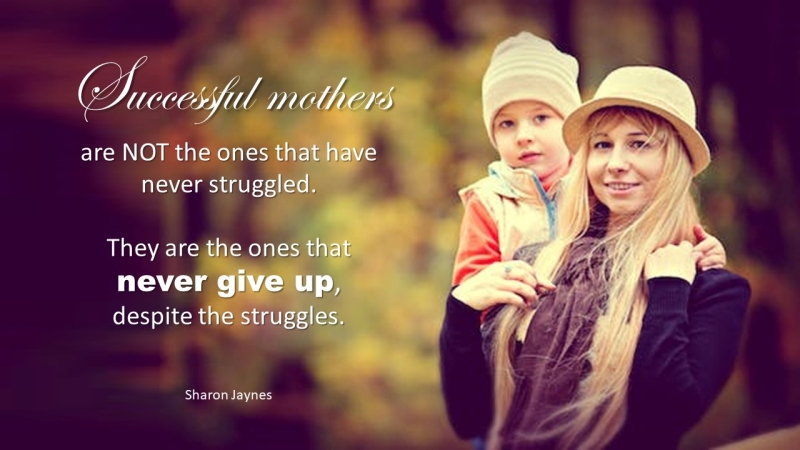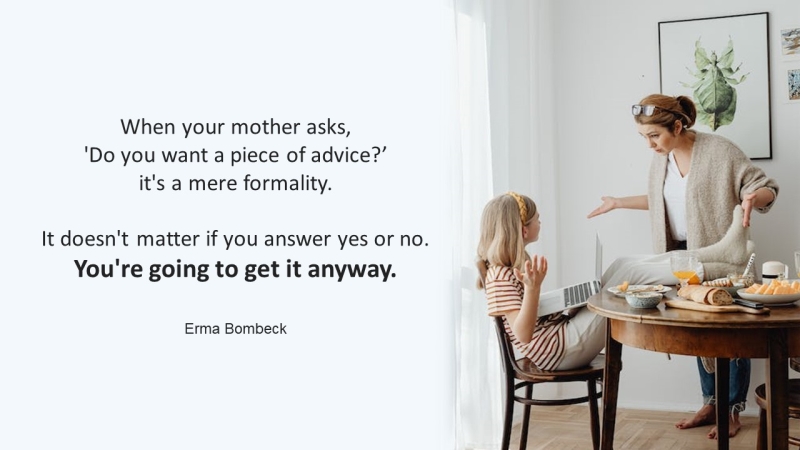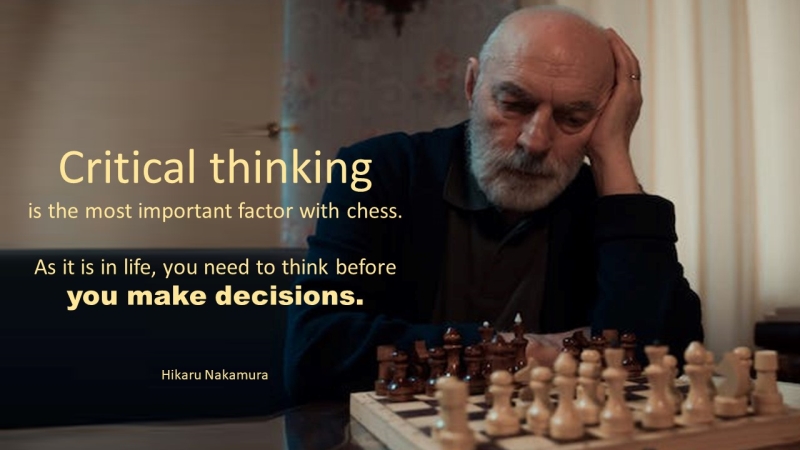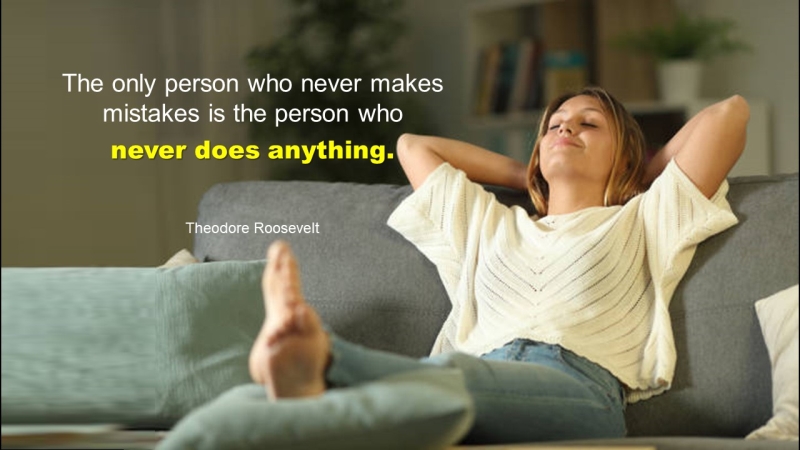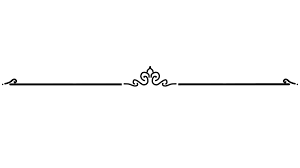CRITICAL THINKING IS CRUCIAL IN ALL AREAS OF LIFE, BOTH PERSONAL AND PROFESSIONAL, and is an essential skill for success. When faced with difficult decisions or strategic games like chess, you will stand out a winner if you can think critically. This ability can help you navigate through complex situations with clarity and confidence. It is an ultimate strategy in the game of life that involves analyzing information, assessing its accuracy and value, and making a decision or judgment based on it. It is the ability to identify and evaluate evidence, think logically and objectively, and be open-minded.
As a result, critical thinking enables you to make informed choices by evaluating the pros and cons of each option, considering potential consequences, and making a well-informed decision. In addition, it helps you communicate effectively with others by expressing your thoughts logically and clearly. Similarly, critical thinking is fundamental in chess, which requires strategic thinking and problem-solving. You can win the game by anticipating your opponent’s moves, identifying potential threats, and creating an effective strategy.
Critical thinking skills can make you an effective problem-solver, decision-maker, and communicator. So, whether you’re facing a complex situation in life or on the chessboard, always remember that critical thinking is essential for success. Start practicing it today, and you’ll be amazed at how it transforms your life.

What is Critical Thinking
Critical thinking is the foundation of logical reasoning and sound decision-making. Success in all facets of life depends on this ability, which can be developed and improved over time.
Let’s explore the definition, elements, benefits, and examples of critical thinking.
Definition:
Critical thinking is analyzing, evaluating, and interpreting information systematically and logically. It involves questioning assumptions, recognizing biases, and identifying the underlying factors that influence a particular situation or problem.
Elements:
Several key elements of critical thinking are essential for effective decision-making and problem-solving. These include:
- Analysis: The capacity to dissect intricate information into its parts and spot essential patterns and relationships
- Evaluation: The ability to assess the quality and relevance of information and to determine its significance in the context of a particular problem or situation.
- Inference: The ability to draw logical conclusions based on available evidence and information
- Explanation: The ability to clearly and effectively communicate your thought process and reasoning to others
Benefits:
The benefits of critical thinking are numerous and far-reaching. Some of the most significant benefits include:
- Improved decision-making: By thinking critically, you can assess all available information and make more informed decisions.
- Better problem-solving: Using critical thinking, you can identify workable solutions and deconstruct complicated issues into smaller, more manageable pieces.
- Increased creativity: Critical thinking encourages you to think outside the box and consider alternative perspectives and solutions.
- Enhanced communication: Critical thinking helps you communicate your thoughts and ideas more effectively by organizing your thinking and articulating your reasoning.
Examples:
Some illustrations of critical thinking in action are as follows:
- A doctor evaluates a patient’s symptoms and makes a diagnosis.
- A business owner analyzes market trends and develops a marketing strategy.
- A student evaluates different sources of information to determine the most accurate and reliable information.
- A chess player analyzes the opponent’s moves and anticipates potential threats.
To sum up, critical thinking skills are essential for success in all facets of life. Always remember that critical thinking is the key to winning life’s chess game. By improving your critical thinking abilities, you can solve problems more efficiently, make better decisions, and communicate more effectively.

Chess and Critical Thinking
Let’s explore the connection between chess and critical thinking. Chess is a long-played game that calls for a high level of strategic thinking and analytical abilities. It is a game that can teach us a lot about the importance of critical thinking.
Importance of Critical Thinking in Chess
Two players compete in the game of chess on a board. The game’s objective is to checkmate the opponent’s king, trapping it so it cannot escape capture. Players start with 16 pieces on a 64-square board. Critical thinking is essential to success in chess. Players must analyze the board, anticipate their opponent’s moves, and evaluate potential outcomes to make strategic decisions. Critical thinking makes it possible to play chess at a high level.
Examples of Critical Thinking in Chess
Here are some chess game examples of critical thinking in action:
- Anticipating your opponent’s moves: By analyzing the board and considering your opponent’s potential moves, you can predict their next move and prepare accordingly.
- Evaluating possible outcomes: Every move in chess has potential consequences. By evaluating potential outcomes, you can make the best strategic decision.
- Adapting to changing circumstances: Chess is a game of constant change. Critical thinking allows you to adapt to changing circumstances and adjust your strategy accordingly.
Critical Thinking in Chess and in Life:
The connection between critical thinking in chess and life is evident. Chess requires players to think ahead, anticipate outcomes, and consider the consequences of their actions. Business and personal success require these skills.
By developing critical thinking skills through playing chess, you can apply these skills to all areas of your life. You can communicate your ideas more effectively, make better decisions, and solve problems.
In conclusion, critical thinking is the ultimate strategy in the chess game of life. By playing chess and developing your critical thinking skills, you can become a more effective problem solver, decision-maker, and communicator. Remember that you can use the chess skills you acquire in all aspects of your life.

The Chess Game of Life
Life is like a game of chess, full of challenges and opportunities. It requires us to think strategically and make critical decisions. Let’s explore the connection between the chess game of life and the importance of critical thinking.
Life as a Game:
Life is often compared to a game because, like a game, it has rules, objectives, and strategies. We are all players in the game of life, and our decisions determine our success and happiness.
Like chess, life requires us to think ahead, anticipate potential outcomes, and make strategic decisions. Both games require us to use critical thinking skills to navigate challenges and achieve our objectives.
Importance of Critical Thinking in Life:
We can benefit from critical thinking in all facets of our lives. Whether we are making decisions about our careers, relationships, or health, critical thinking allows us to evaluate potential outcomes and make the best possible decision.
Here are some illustrations of critical thinking in the context of life’s game:
- Career decisions: When making decisions about our career, critical thinking allows us to evaluate our skills, interests, and potential job opportunities to make the best decision.
- Relationship decisions: In our relationships, critical thinking allows us to consider the consequences of our actions and communicate effectively with our partners.
- Health decisions: Critical thinking enables us to assess potential treatments and consider our decisions’ long-term effects when making decisions about our health.
We can improve all aspects of our lives, including our ability to make decisions, increasing our success and happiness.
In conclusion, critical thinking is the ultimate strategy in the chess game of life. By applying the critical thinking skills we learn through playing chess to all areas of our lives, we can make better decisions, achieve our objectives, and live a happier and more fulfilling life. Life is a game, and critical thinking is the key to winning.

Applying Critical Thinking in Life
Benefits of Applying Critical Thinking in Life
Critical thinking can help you in many aspects of your life. When you apply critical thinking, you are better equipped to:
- Solve problems
- Make sound decisions
- Identify and evaluate potential risks and opportunities.
- Analyze complex situations
- Communicate effectively
- Innovate and create new solutions.
Examples of Applying Critical Thinking in Life
Here are some examples of how you can apply critical thinking in various areas of your life:
- Career: analyzing job opportunities, evaluating potential employers, and making informed decisions about your career path
- Relationships: assessing the motives and intentions of others, identifying and resolving conflicts, and communicating effectively with others
- Health and wellness: making informed decisions about your diet and exercise routine, evaluating the credibility of health information, and identifying and mitigating health risks
- Finances: making informed decisions about investments and financial planning, assessing the credibility of financial advice, and identifying and mitigating financial risks
Overcoming the Common Obstacles to Critical Thinking
While critical thinking is a valuable skill, some obstacles can impede your ability to think critically. These obstacles include:
- Biases and prejudices: Everyone has biases and prejudices that can influence their thinking. To overcome this, you must be aware of your preferences and actively seek diverse perspectives.
- Emotional reasoning: Emotions can cloud your judgment and prevent you from thinking logically. It’s essential to be aware of your emotions and strive to reason, even in emotionally charged situations.
- Lack of information: Critical thinking requires a strong foundation of knowledge. If you need more information about a particular topic, it’s essential to do research before making any decisions.
How to Develop Critical Thinking Skills
If you want to develop your critical thinking skills, here are some strategies that can help:
- Ask questions. Critical thinking is built on the process of asking questions.
- Challenge assumptions: Don’t accept information at face value. Challenge assumptions and seek out evidence to support or refute them.
- Seek out diverse perspectives: Consider multiple viewpoints and perspectives on any given topic. This can assist you in locating any potential thinking errors and biases.
- Practice analyzing information: Analyze information from various sources, evaluate the credibility of sources, and consider the implications of the information presented.
Critical thinking is the ultimate strategy in the chess game of life. By mastering it, you can achieve tremendous success and fulfillment. By developing your critical thinking skills and applying them in various areas of your life, you can become a more effective problem-solver, decision-maker, and communicator.

Critical Thinking as the Ultimate Strategy
What is a strategy?
When we hear the word “strategy,” we often think of a plan of action or a game plan. A strategy is a plan or method used to achieve a specific outcome, like winning a game or reaching a goal. A well-thought-out strategy can significantly increase our chances of success in chess and life.
Importance of Strategy in Chess and Life
In chess, strategy is everything. With a solid strategy, beating a skilled opponent is nearly impossible. Similarly, having a plan of action can make all the difference in realizing our ambitions. Whether starting a new business or pursuing a personal goal, having a well-planned strategy can help us stay focused and succeed.
How Critical Thinking Can Lead to Effective Strategy
Critical thinking is the ultimate strategy because it enables us to make informed decisions based on evidence, logic, and reasoning. Thinking critically allows us to evaluate the situation, consider various options, and choose the best course of action. This applies to both chess and life.
Benefits of Using Critical Thinking as the Ultimate Strategy
There are many benefits to using critical thinking as the ultimate strategy in chess and life. Some of these benefits include:
- Increased effectiveness: When we think critically, we are more likely to make informed decisions that lead to better outcomes.
- Improved problem-solving: Critical thinking allows us to analyze problems from multiple perspectives, which can lead to more creative and effective solutions.
- Enhanced decision-making: Critical thinking can help us make better short-term and long-term decisions by evaluating all the options and considering all the variables.
- Greater self-awareness: We can develop greater self-awareness and better understand our biases and limitations by critically examining our thoughts and beliefs.
Using critical thinking as the ultimate strategy, we can improve our performance in chess and life and achieve tremendous success in all our endeavors.

Conclusion
Critical thinking is the ultimate strategy in the chess game of life. By developing and applying critical thinking skills, you can make informed decisions and overcome obstacles to achieve your goals.
In this article, we’ve looked at critical thinking, why it’s valuable, how it applies to chess and life, and how to practice it. We have also discussed the power of critical thinking in creating effective strategies and achieving success.
Now it’s time to take action. Start by recognizing the importance of critical thinking in your everyday life and consciously practicing using it in your decision-making process. Remember, critical thinking is not about being right or wrong but about being informed and making well-reasoned choices.
So, the next time you face a challenging situation, approach it like a chess game. Take a step back, analyze the problem, and consider all the possible options. If you do this, you will be better able to succeed in the chess game of life and make the best choice for yourself.

